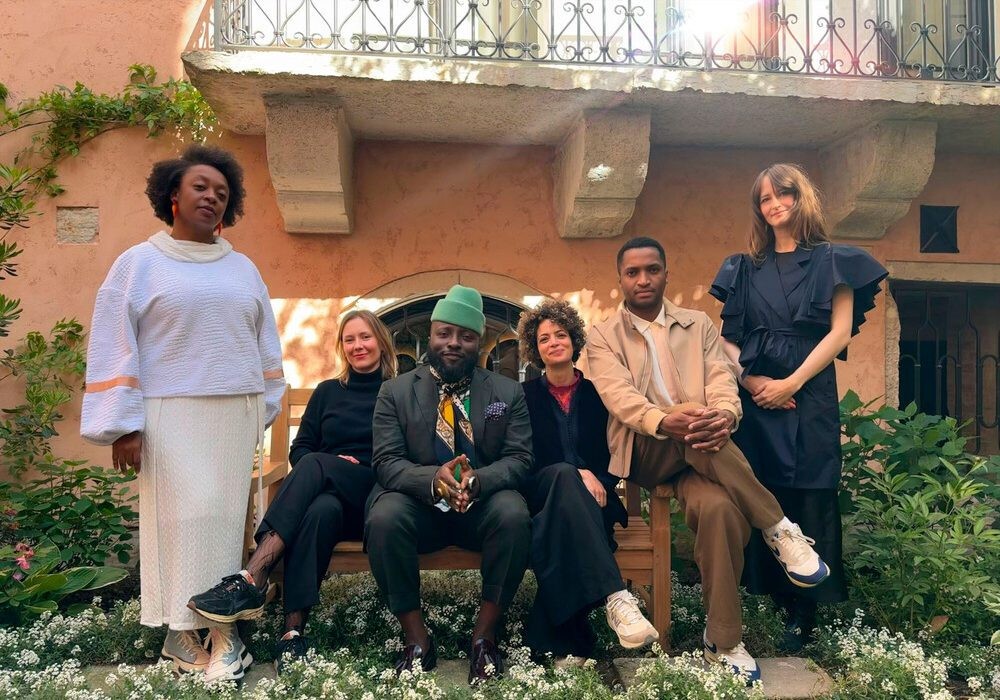36th Bienal de São Paulo Reveals Title, Concept, Partnerships, and Visual Identity
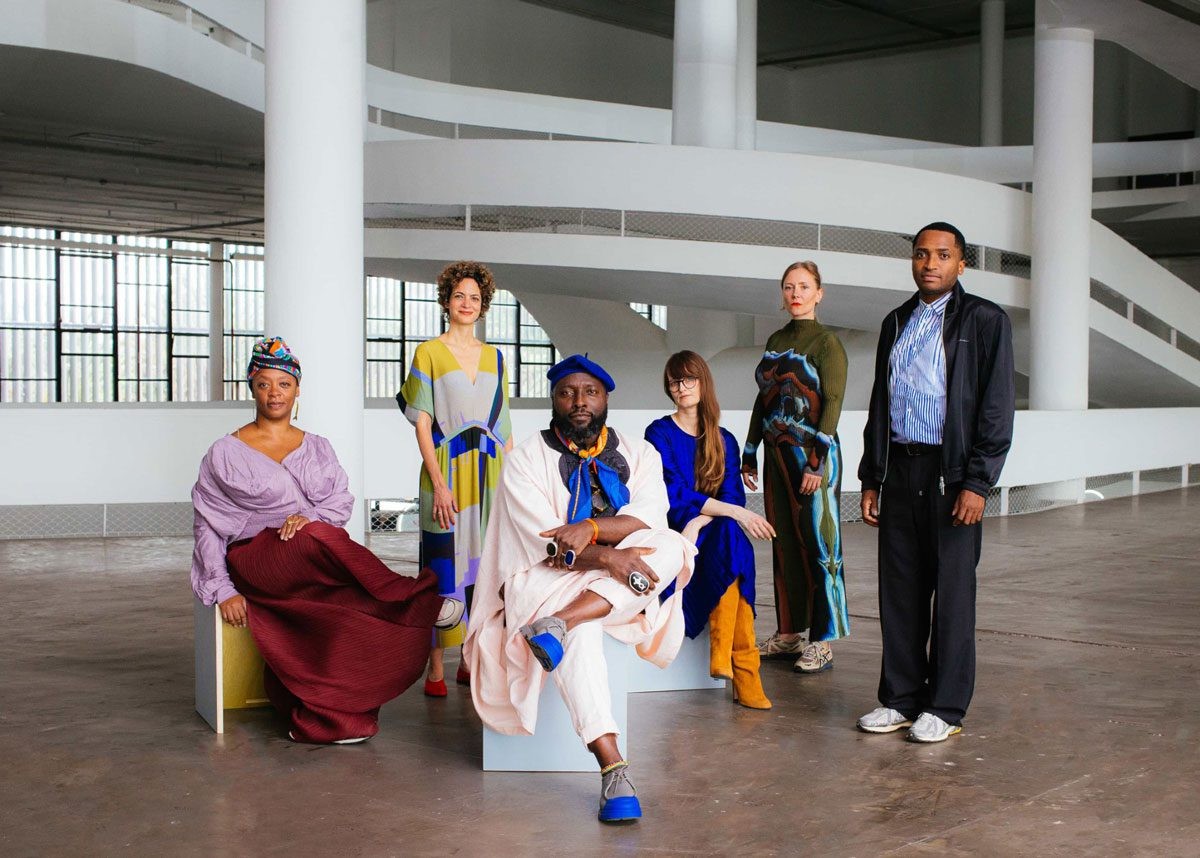
30 October 2024
Magazine C& Magazine
9 min de lecture
"Not All Travellers Walk Roads – Of Humanity as Practice“ will take place as of September 2025 at the Ciccillo Matarazzo Pavilion in São Paolo, Brazil.
Entitled Not All Travellers Walk Roads – Of Humanity as Practice, this edition of the Bienal de São Paulo will be led by chief curator Prof. Dr. Bonaventure Soh Bejeng Ndikung together with his conceptual team of co-curators Alya Sebti, Anna Roberta Goetz and Thiago de Paula Souza, as well as co-curator at large Keyna Eleison and strategy and communication advisor Henriette Gallus. The exhibition takes its cue from Afrobrazilian poet Conceição Evaristo’s poem Da calma e do silêncio (Of calm and silence).
The exhibition is also accompanied by a historic change in the organization of the event, which is traditionally held from September to December. The Fundação Bienal is pleased to announce that the 36th Bienal will be extended by an additional four weeks, being presented free of charge to the public from September 6, 2025, to January 11, 2026. The decision was made by President Andrea Pinheiro and her Board of Directors to further expand the reach of the exhibition, allowing a larger number of visitors to enjoy it during the school holiday period.
The central proposal of this Bienal is to rethink humanity as a verb, a living practice, in a world that requires reimagining relationships, asymmetries and listening as the basis for coexistence, based on three curatorial fragments/axes. The metaphor of the estuary – a place where different water currents meet and create a space for coexistence – guides the curatorial project, inspired by Brazilian philosophies, landscapes and mythologies. This concept reflects the multiplicity of encounters that have marked Brazil’s history and proposes that humanity comes together and transforms itself through an attentive ear and negotiation between different beings and worlds.
According to chief curator Prof. Dr. Bonaventure Soh Bejeng Ndikung:
“In a time when humans seem to have, again, lost grip on what it means to be human, in a time when humanity seems to be losing the ground under its feet, in a time of aggravated sociopolitical, economic, environmental crisis across the globe, it seems to us urgent to invite artists, scholars, activists, and other cultural practitioners anchored within a wide range of disciplines to join us in rethinking what humanity could mean and conjugating humanity. Despite or because of all these past-present-future crises and urgencies, we must afford ourselves the privilege of imagining another world through another concept and practice of humanity. So Not All Travelers Walk Roads — Of Humanity as Practice is an invitation to think and manifest humanity as a verb and a practice, to think about humanity as encounter(s) and negotiations upon the meeting of varying worlds. It is an invitation to deliberate on the dismantling of asymmetries as a prerequisite for humanity as a practice, just as this Bienal gives us to center joy, beauty and their poeticalities as the gravitational forces that keep our worlds on their axes… for joy and beauty are political. This is an invitation to imagine a world in which we place an accent on our humanities in a moment when humanity is literally failing us.”
Regarding the 36th edition, Andrea Pinheiro, president of the Fundação Bienal de São Paulo, reflects:
“The Bienal de São Paulo is a Brazilian cultural legacy, and this edition is the result of a collective process that began with our advisory board, responsible for deliberating and selecting the curatorial project most aligned with contemporary challenges. This year, we were thrilled to receive the project Not All Travelers Walk Roads – Of Humanity as Practice, proposed by Bonaventure Soh Bejeng Ndikung. This project not only reaffirms the Bienal’s role as a space for reflection and dialogue on the most pressing issues of our time, but also demonstrates the institutional commitment of the Fundação to promoting artistic practices in a way that is accessible and relevant to diverse audiences. And it is precisely with the aim of reaching as many people as possible that we have extended the duration of the exhibition by four weeks, until January 2026, so that more visitors have the opportunity to engage with the incredible artistic production that the curatorial team is gathering.”
The curatorial proposal
This edition of the Bienal de Sao Paulo is structured as a research project that will manifest itself in three fragments/axes. The first curatorial fragment/axis advocates for claiming space and time, it seeks to slow down and pay attention to details and other beings that constitute our surroundings. This fragment situates itself within Conceição Evaristo’s poem Da calma e do silêncio and evokes the importance of exploring the submerged worlds that only the silence of poetry and poetic listening can access, by welcoming differences and suggesting a reconnection with the natural environment and its subtleties.
In the second fragment/axis, the Bienal invites the public to see themselves in the reflection of the other. The proposal is to question what we see when we look at ourselves and others, confronting the barriers and borders of our societies. This fragment situates itself within the poem by Haitian poet René Depestre Une Conscience En Fleur Pour Autrui and it explores the interconnectedness of experiences, proposing a coexistence that is more attentive to collective needs.
Finally, the third fragment/axis focuses on spaces of encounters – like estuaries that are spaces of multiple encounters, not only the meeting of sweet and salt water, but also the encounter of the so-called new world by the enslaved people abducted from Africa. This fragment reflects on coloniality, its power structures and the ramifications thereof in our societies today. This reflection is based on the manguebit movement and its ‘Crabs with Brains’ manifesto, understood as a representation of the so-called collective social brain. Brazil’s history, marked by the fusion of Indigenous peoples, Europeans and enslaved Africans, is a microcosm of the power asymmetries that still persist. Along these lines, the exhibition explores how cultures and societies deal with these differences and create new paths of coexistence and beauty, as manifested in Patrick Chamoiseau and Edouard Glissant’s The intractable beauty of the world.
Poster for the 36th Bienal de São Paulo. ©️ Studio Yukiko / Fundação Bienal de São Paulo. The title of the 36th Bienal de São Paulo, ‘Not All Travelers Walk Roads’, is made up of verses by the writer Conceição Evaristo.
Not All Travelers Walk Roads — Of Humanity as Practice is an invitation to think and manifest humanity as a verb and a practice, to think about humanity as encounter(s) and negotiations upon the meeting of varying worlds.
Global convergences
As an essential part of its curatorial proposal, the 36th Bienal de São Paulo will feature the Invocations: a series of partnerships with cultural institutions from different parts of the world that precede the São Paulo show. Invocations are poetry, music, performance, discursive, panel gatherings that echo the central ideas of the 36th Bienal, investigating and apprehending notions of humanity within different geographies.
The cycle of Invocations will include talks, lectures, workshops and performances in four different cities around the globe. The first two events will be presented in 2024 in Marrakech, Morocco, and Les Abymes, Grande Terre, Guadeloupe. The Morrocan encounter will take place at Le18 and Fondation Dar Bellarj, lead by Laila Hida and Maha El Madi; while the second Invocation will take place at Lafabri’K, led by Léna Blou. In 2025, Invocations #3 and #4 will take place in Zanzibar, Tanzania, and Tokyo, Japan, respectively, in venues yet to be announced.
The first Invocation, entitled “Souffles: On Deep Listening and Active Reception”, and held in November 14 and 15 in Marrakech, will be a deliberation on the precarity of breath, on Gnawa, and Sufi cultures, and address listening as a practice of coexistence.
The second Invocation, entitled “Bigidi mè pa tonbé!” [Totter, but never fall!], presented in December 5 to 7 in Les Abymes, Guadeloupe, will reflect on the intelligence of the movement of bodies between rupture and adaptation to maintain the balance in movement in times of crisis.
The third Invocation held in February 2025 in Zanzibar, entitled “Mawali—Taqsim: Improvisation as a Space and Technology of Humanity”, is based on the perception of Taarab not only as a rhythm, but as a construction of encounters and multiple exchanges that the territory of Tanzania and the Indian Ocean have fostered.
The fourth and final Invocation, held in March 2025 in Tokyo, “The Uncanny Valley or I’ll Be your Mirror” brings thoughts and encounters about the dynamics of affection between humans and non-humans, people and machines in an exercise of building co-existences, interactions, distances and proximities.
These meetings will act as tributaries, converging on the main body of the 36th Bienal in São Paulo, at the Ciccillo Matarazzo Pavilion.
An important tributary of the 36th Bienal de São Paulo will be Casa do Povo [lit. The People’s House], in São Paulo, a cultural center that revisits and reinvents notions of culture, community and memory. It will host a performance program developed by Benjamin Seroussi (Casa do Povo’s artistic director) and Daniel Blanga Gubbay (Kunstenfestivaldesarts’ artistic director). Other tributaries will be announced in due course.
Visual identity
The Berlin studio Yukiko, founded by Michelle Phillips and Johannes Conrad, will be responsible for the visual identity of the 36th Bienal. Renowned for its experimental style, the studio brings an approach that dialogues directly with the curatorial concept of this edition, creating a visual and graphic experience that reinforces the role of listening and the idea of confluences based on the image of the estuary.
Plus d'articles de
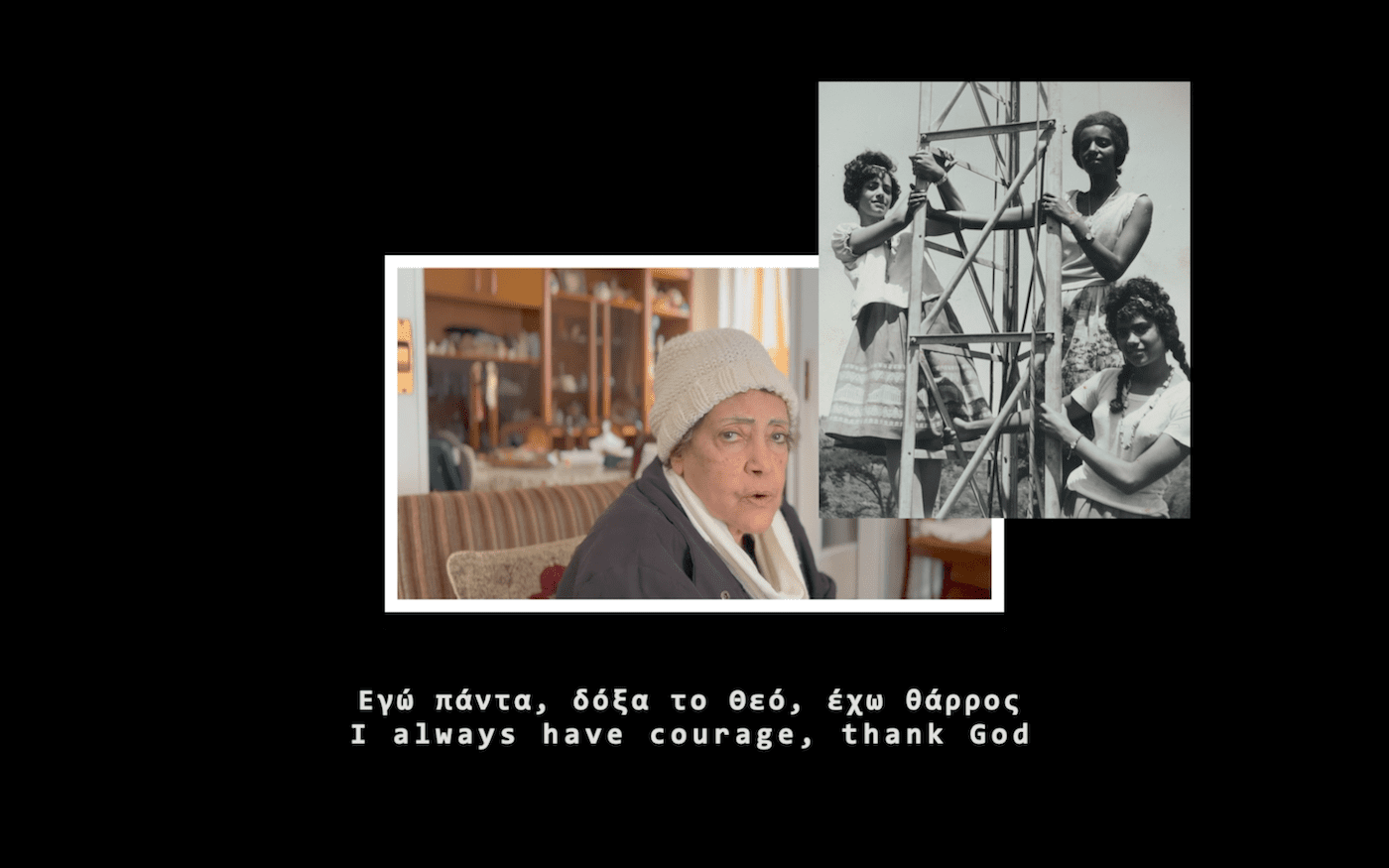
Agape Harmani: Trauma as an Essential Part of Diaspora
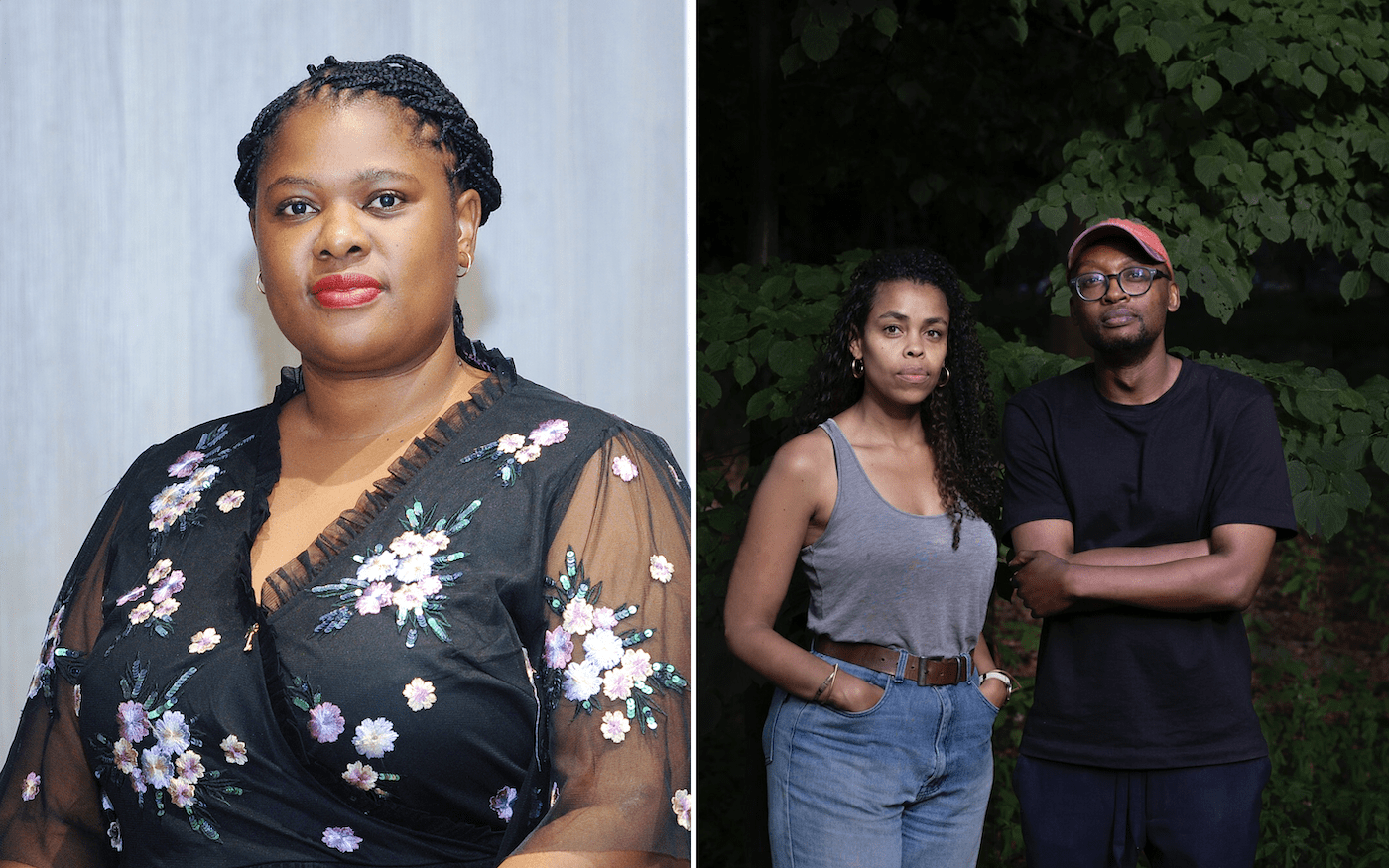
South Africa Pavilion Announces Curator, Artists and Exhibition Title for Venice Biennale 2024
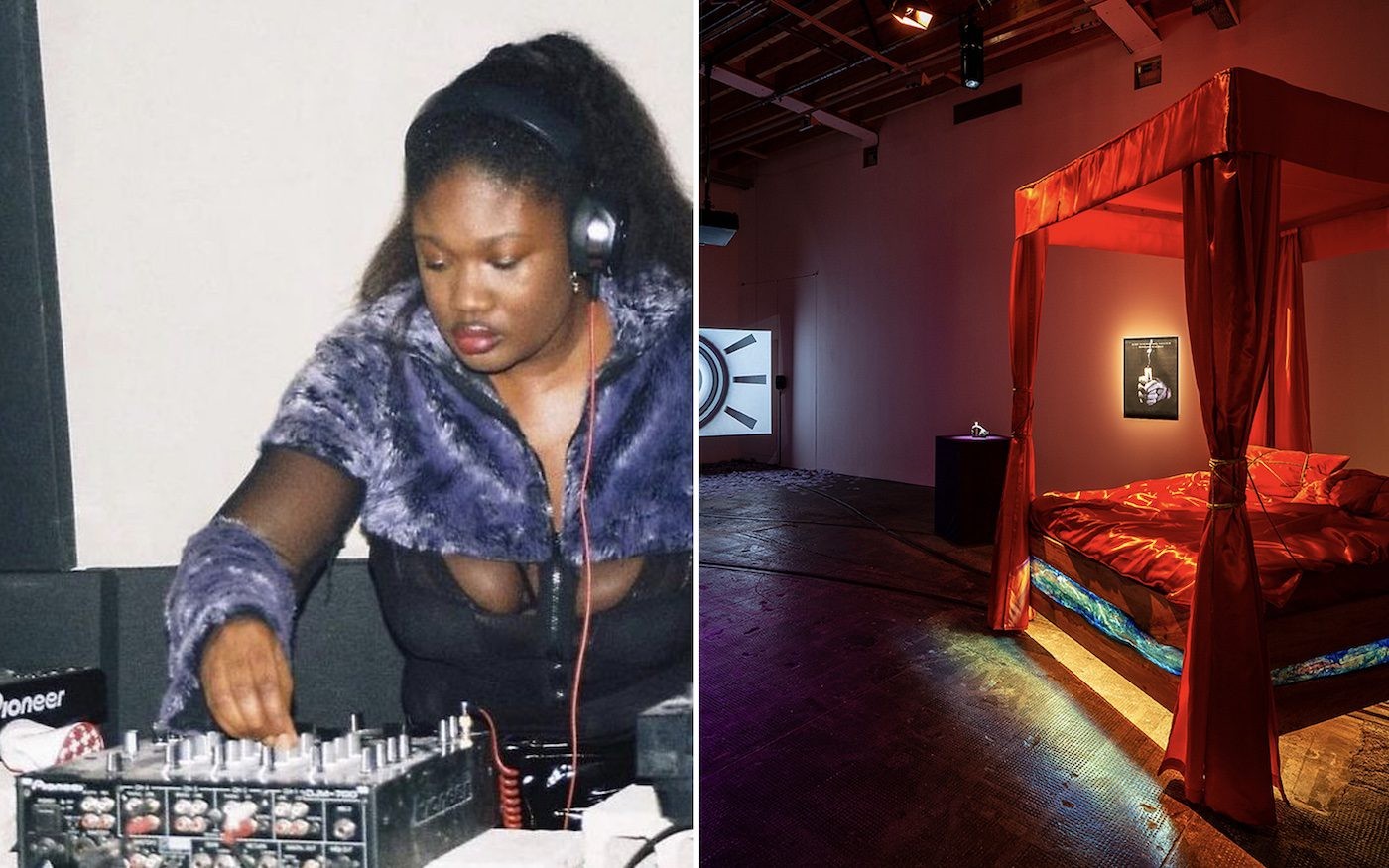
Christelle Oyiri Awarded PONTOPREIS MMK 2024
Plus d'articles de
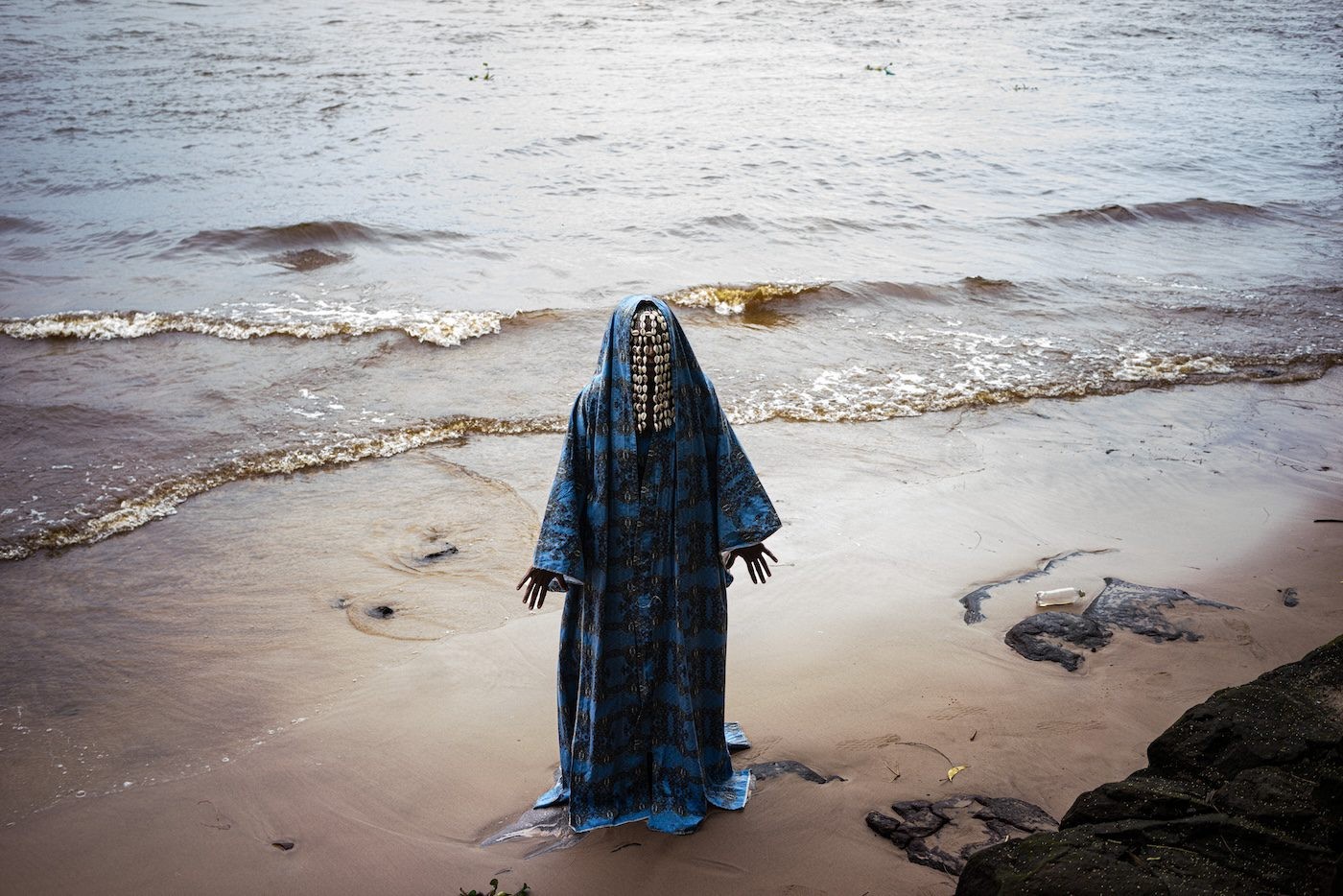
La Fundação Bienal de São Paulo annonce la liste des participant·e·s de sa 36e édition
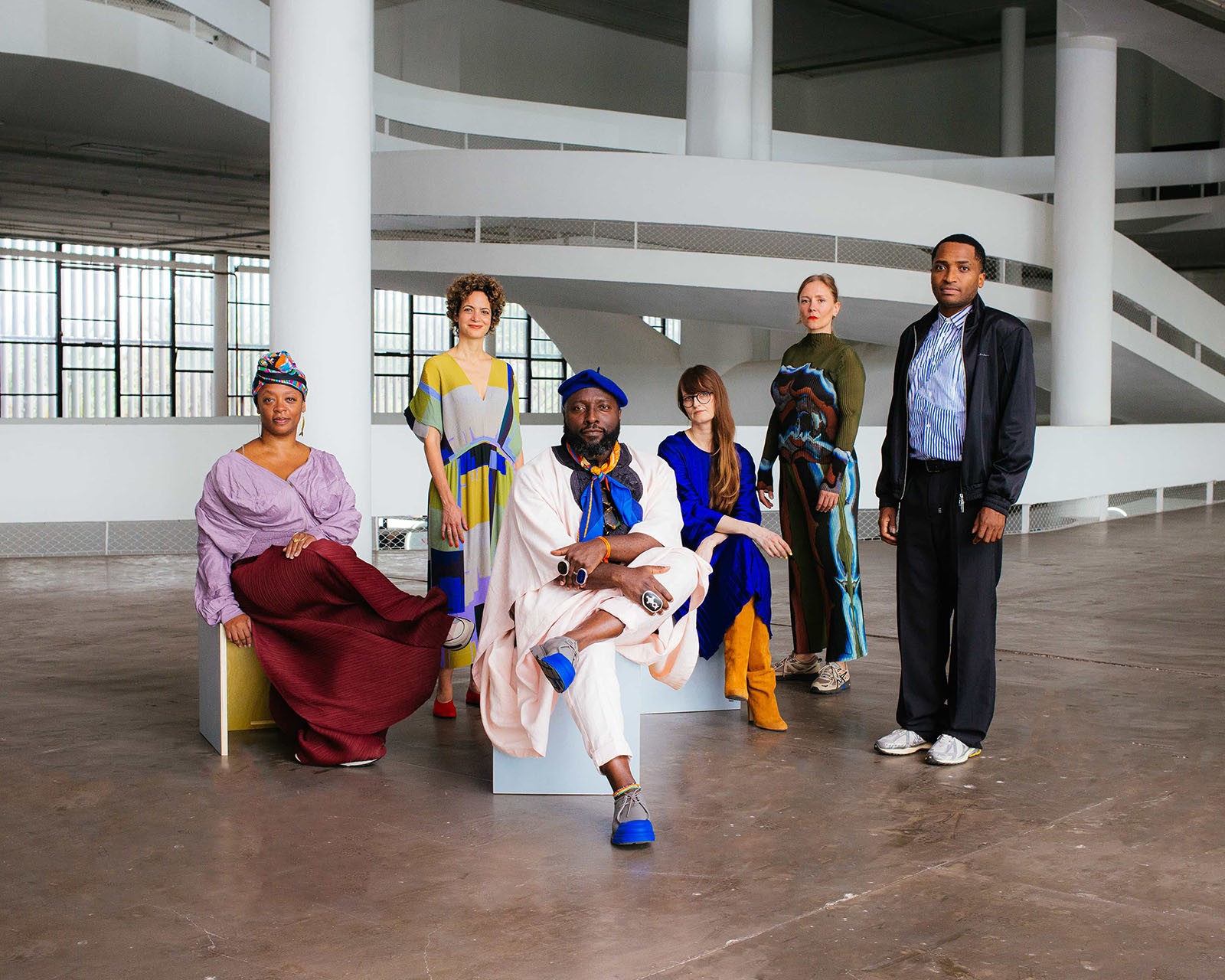
Not All Travellers Walk Roads – Of Humanity as Practice
